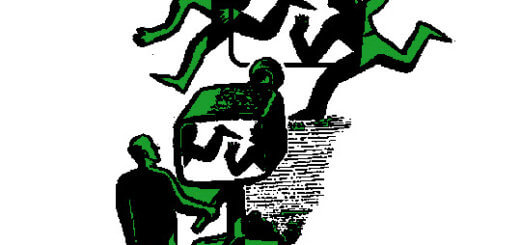A History of English Pronouns
Currently in English we have these pronouns (direct ~ object)…
I ~ me
You ~ you
He ~ him
She ~ her
It ~ it [for non-human nouns]
They [third person singular]
We ~ us
You ~ you
They ~ them
Compare that to pronouns of an earlier English
I ~ me
Thou ~ thee
He ~ him
She ~ her
Man (or ou) ~
It (or hit) ~ it
We ~ us
Wit ~ us
Yit ~ us
Ye (you) ~ you
They ~ them
There are some interesting features of this evolution:
English gets more and more simple over time. This is due to the fact that England was invaded many times by various groups. There was always some accommodation on both sides. The predominantly English speaking population weren’t about to shift languages and the conquerors never really learned to speak English well. So English became bastardized. So the more sophisticated, “Would you be so kind as to direct me towards your restroom facilities.” would have simply become, “Where’s the toilet?”
Dual pronouns are a thing of the past. A more sophisticated language has many more distinctions. In the case of old English, we had dual pronouns that indicated two people: wit (we two) and yit (ye two). Why use four pronouns when two will do the same job.
Old English had a gender neutral singular pronoun similar to the French “on”. The pronoun “man” (probably pronounced “mon”) referred to both men and women in a neutral way. Eventually it became associated with the masculine and then got dropped.
Having a gender neutral pronoun seems important, but nothing really stuck in English. However, we are seeing an increasing use of “they” to serve as a gender neutral third person singular pronoun (i.e. he & she). , ex. “When a person feels unsafe, they get scared.” It seems pretty natural and is certainly easier than saying “he or she”. Grammarians still like to slap wrists over the “correct” use of “they”, but it’s been used this way even by Shakespeare and seems here to stay.
Sometimes in writing, the word “one” is used for this purpose, but it really sounds a little too cold and uppity to move into speech, ex. “One should avoid using the gender neutral pronoun “one” in vernacular speech.”
The pronoun “thou” got replaced by the plural “you”. It’s not uncommon in other languages to use the plural form of you with an individual when there is formality or when the person is held in high regard. It’s almost as though the person is bigger than the singular pronoun thou can express. For example, in French the third person plural “vous” is used (instead of “tu”) when addressing someone respected. King Lear when addressing Cordelia uses both thou and you depending on the tone of the message. When he’s praising her, Lear uses the plural form “you” and when advising her as his child uses the diminutive “thou”.
Along with replacing the singular pronoun thou with you, we’ve also pulled the associated the plural verb form of “you”. So in the past we may have said, “Thou wast (was) mild and lovely.” But today we don’t say, “You was lovely.” We pull up the plural conjugation and say, “You were lovely.”
Because there is no distinction between the singular and plural “you”, people often put some kind of suffix after “you” in speech to indicate plurality. For example, you all, y’all (southern USA), you girls, you guys, or simply youse.












